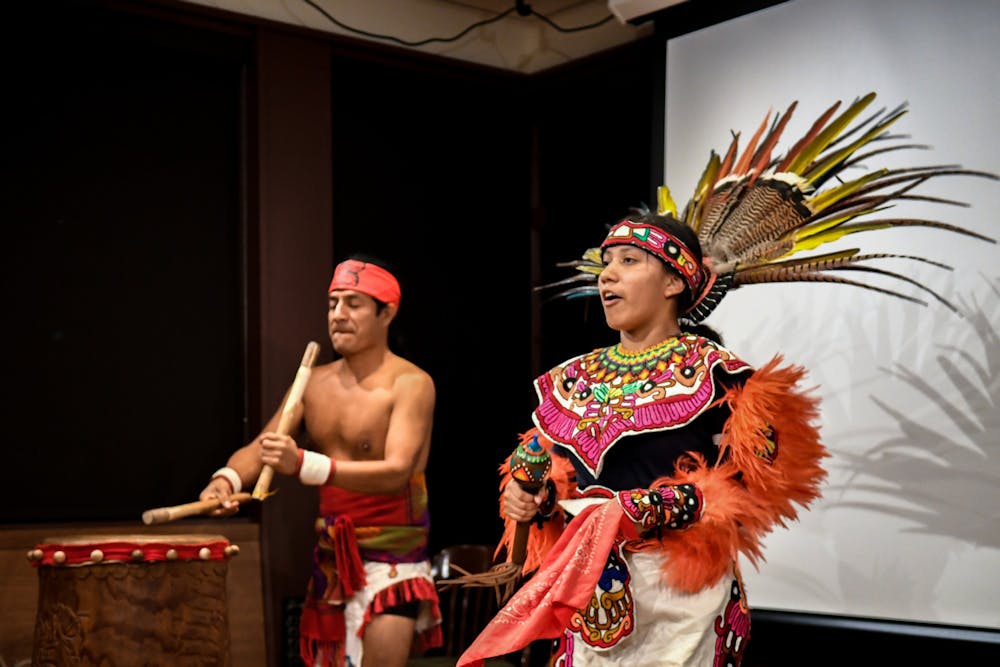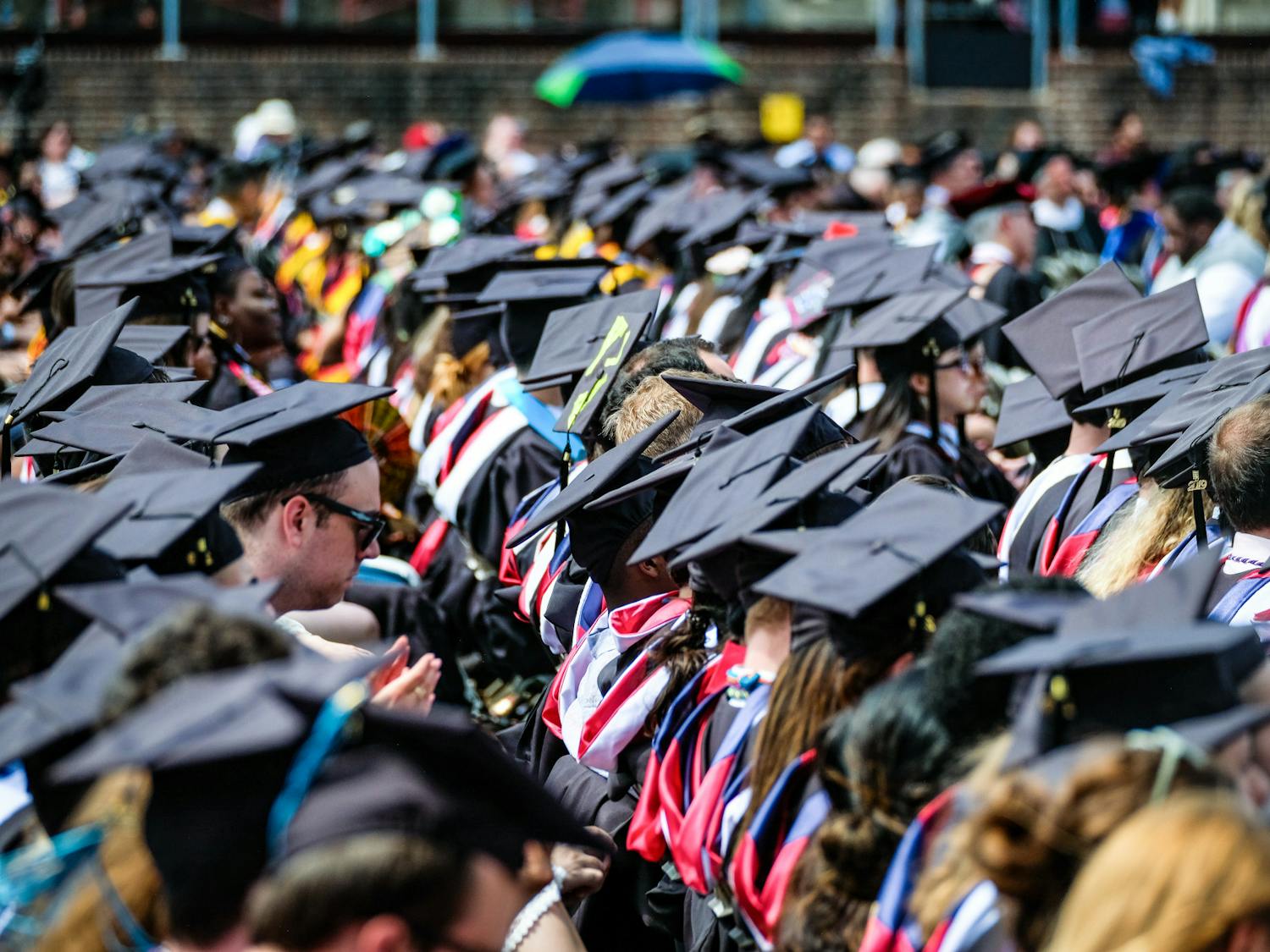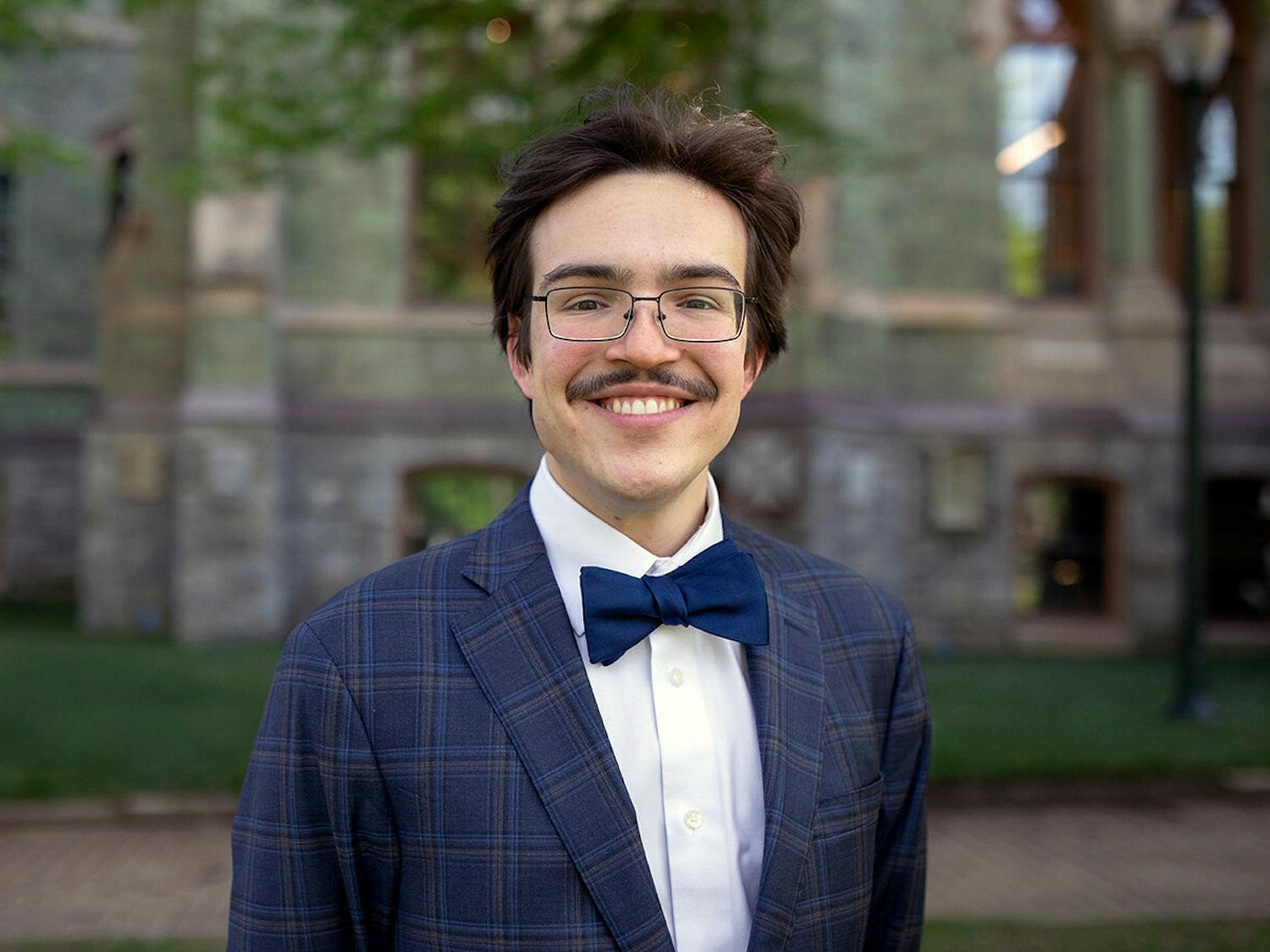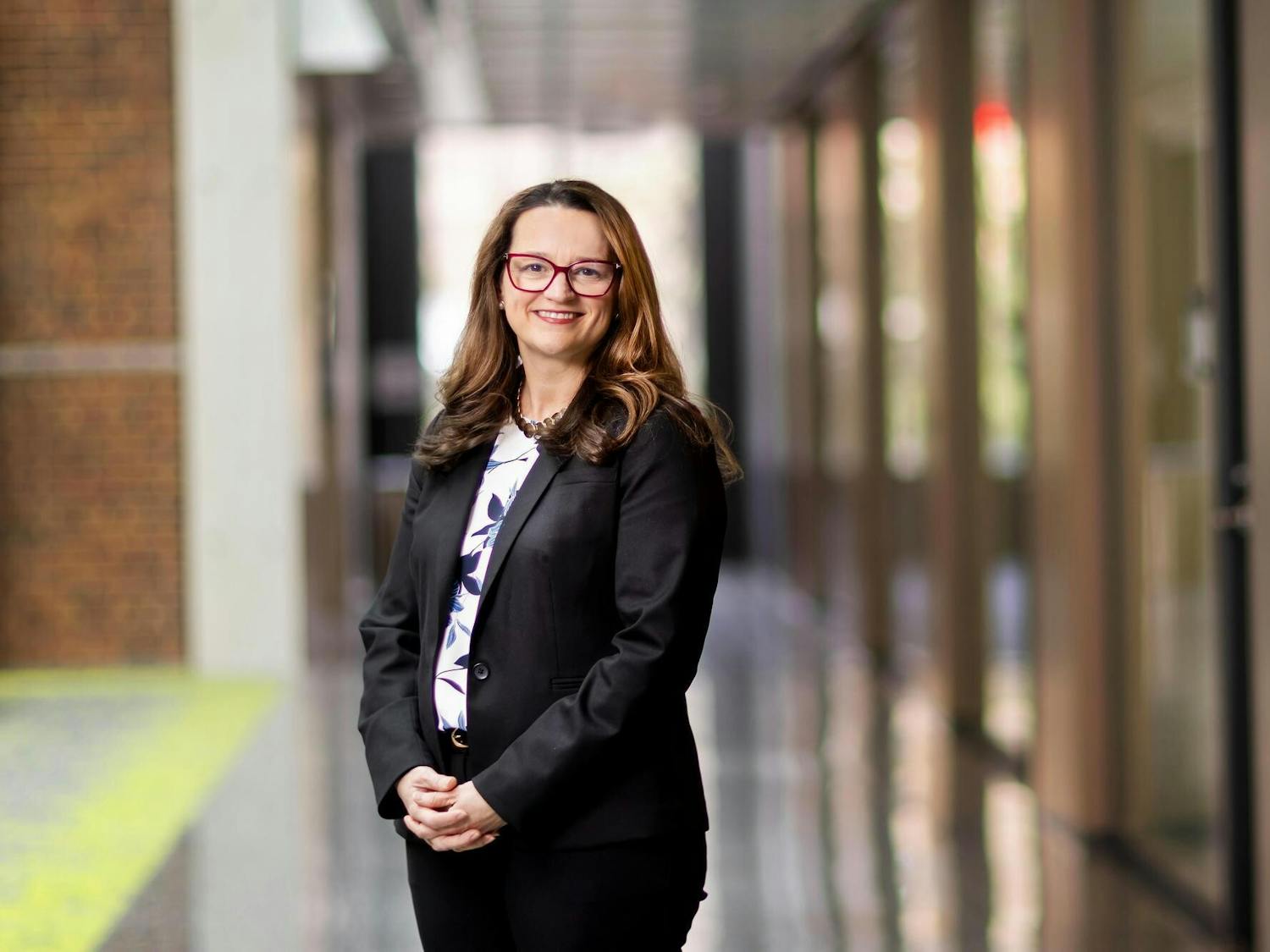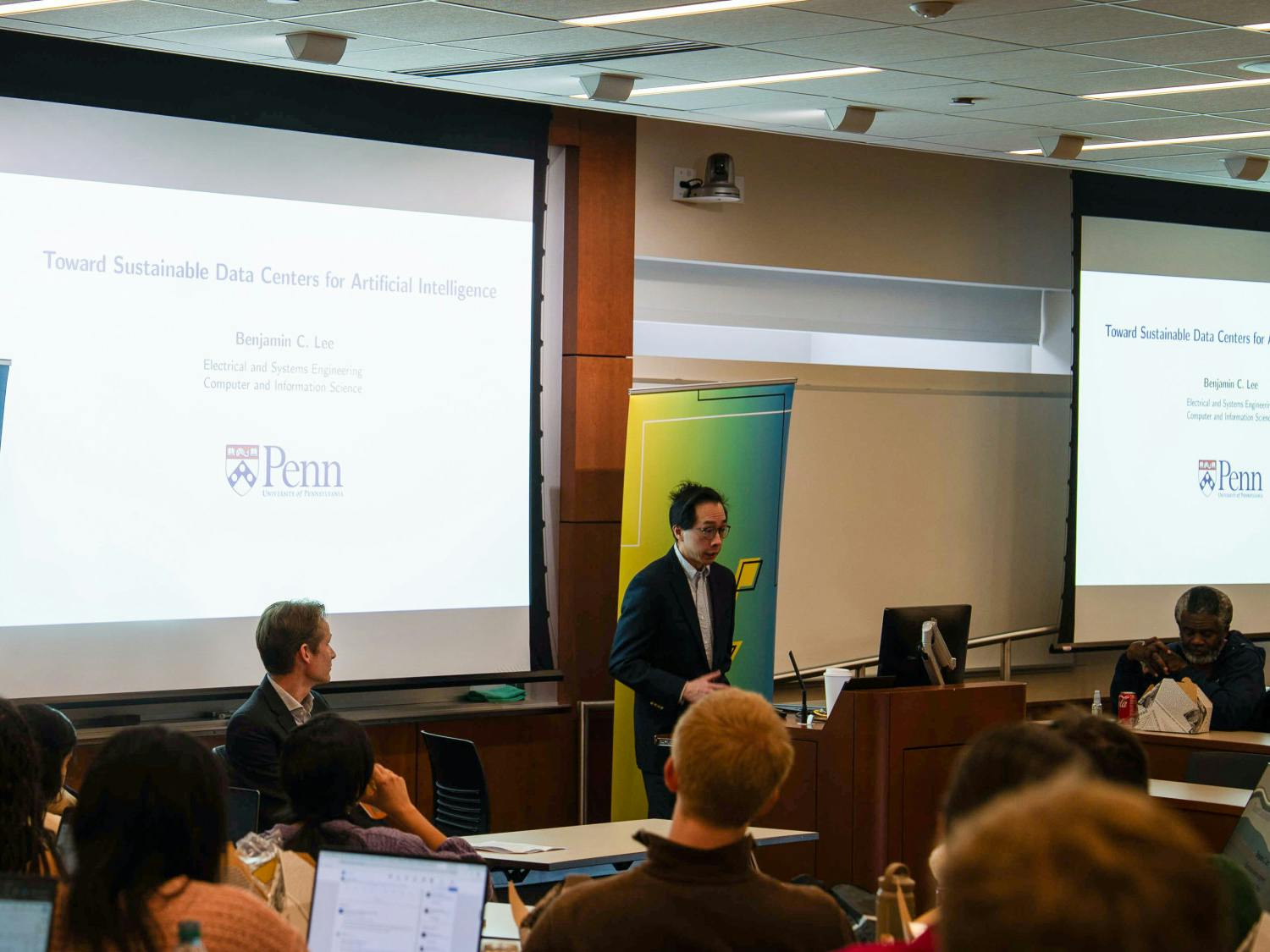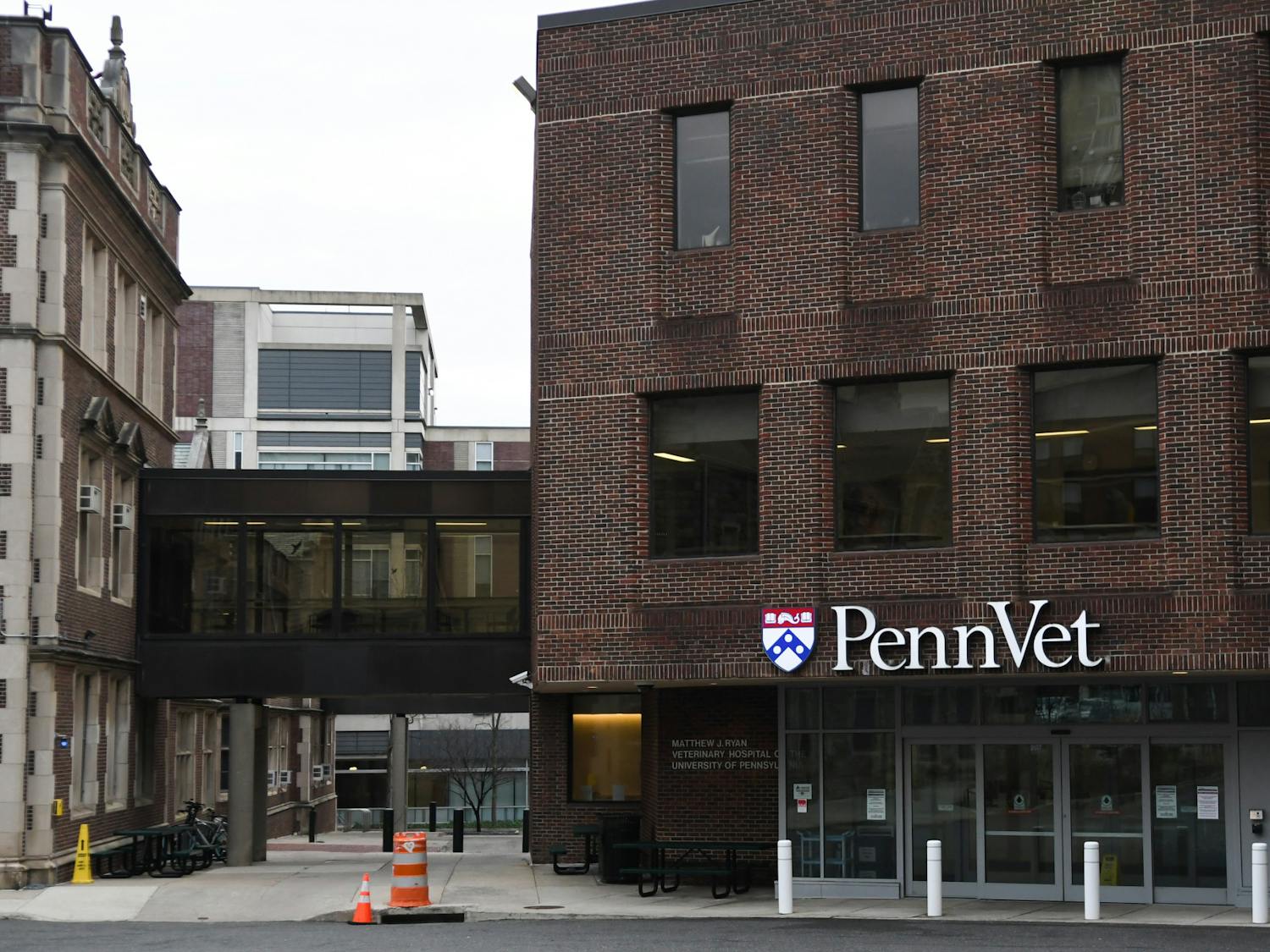Penn hosted its first-ever Indigenous Languages Week to showcase native culture and bring visibility to indigenous communities and their experiences.
The program, organized by Penn's Quechua Language Program and the Kelly Writers House, was inspired by the United Nations’ declaration of 2019 as the International Year of Indigenous Languages. It featured various events from Oct. 26 to Oct. 31 that allowed scholars from around the world to share their expertise with the Penn community, including an academic symposium, roundtable discussions, documentary screenings, and tours of sections of the Penn Museum that are usually unavailable to the public. The events were funded with grants from Penn's Sachs Program for Arts Innovation.
Quechua and Spanish professor Américo Mendoza-Mori, who organized the week, said it aimed to improve visibility of indigenous peoples by emphasizing the study of indigenous languages and culture as modern as opposed to a thing of the past.

Melissa Ogle notes that, “It’s important for people to understand that language is a gateway to culture.”
“Part of the idea of this week of languages is not just to think about the languages themselves, but of the language as a vehicle to all this culture and to the people who now speak the languages,” Mendoza-Mori said.
College junior Melissa Ogle, who helped facilitate the symposium that kicked off the week, stressed the importance of viewing indigenous languages in a broader context.
“It’s important for people to understand that language is a gateway to culture,” Ogle said. “It’s really important to recognize indigenous languages and to make sure that they’re living from generation to generation.”
Ogle also stressed the personal benefits that she and other members of the Penn indigenous community have received from Indigenous Languages Week.
RELATED:
Students gather to reflect on diverse identities at Indigenous Latinx dinner
Penn looks to ‘lead the pack’ in Native American studies following NEH Grant
“When you see your culture in a space like Penn, it makes you feel like it matters, like it belongs,” she said.
Penn has become a hub for indigenous studies in recent years. Mendoza-Mori said Penn's Quechua Language Program, created four years ago as a direct result of student interest, is currently the only Quechua program in the Ivy League.

Connor Beard and Melissa Ogle both expressed a desire that Penn formally recognize Indigenous Peoples’ Day and increases efforts to publicize current programs and events surrounding indigenous studies.
Still, many students feel there is still much that Penn can do to improve its handling of indigenous issues.
“It’s great that Penn does offer Quechua, because not all universities do that. But at the same time, in my opinion, they could be doing more in the language program,” said College junior Connor Beard, a member of the Lumbee tribe who acted as a moderator of a roundtable discussion on reclaiming languages. “Considering the fact that we’re on Lenape lands right now and they don’t offer Lenape, that is something that at the very least should be offered.”
Both Beard and Ogle said they wanted Penn to formally recognize Indigenous Peoples’ Day and increase efforts to publicize current programs and events surrounding indigenous studies.

Mendoza-Mori states that, “It’s important to generate spaces to ask what happens to indigenous people who line in those areas, who will be the ones who are more affected."
College freshman Lauren McDonald said there is a general lack of attention paid to indigenous issues.
“A lot of times we want people to know that we’re still here, we still exist, we still are facing many different problems in different communities,” McDonald said.
Mendoza-Mori also acknowledged the need to better include indigenous peoples in global conversations, such as the dialogue on climate change.
“When we talk about climate change or taking care of the environment, we need to consider who has been taking care of the environment, who has the knowledge to understand the different types of medicinal plants, and who lives now in the most vulnerable areas for climate change,” he said. “It’s important to generate spaces to ask what happens to indigenous people who line in those areas, who will be the ones who are more affected. These people should have a seat at the table.”


